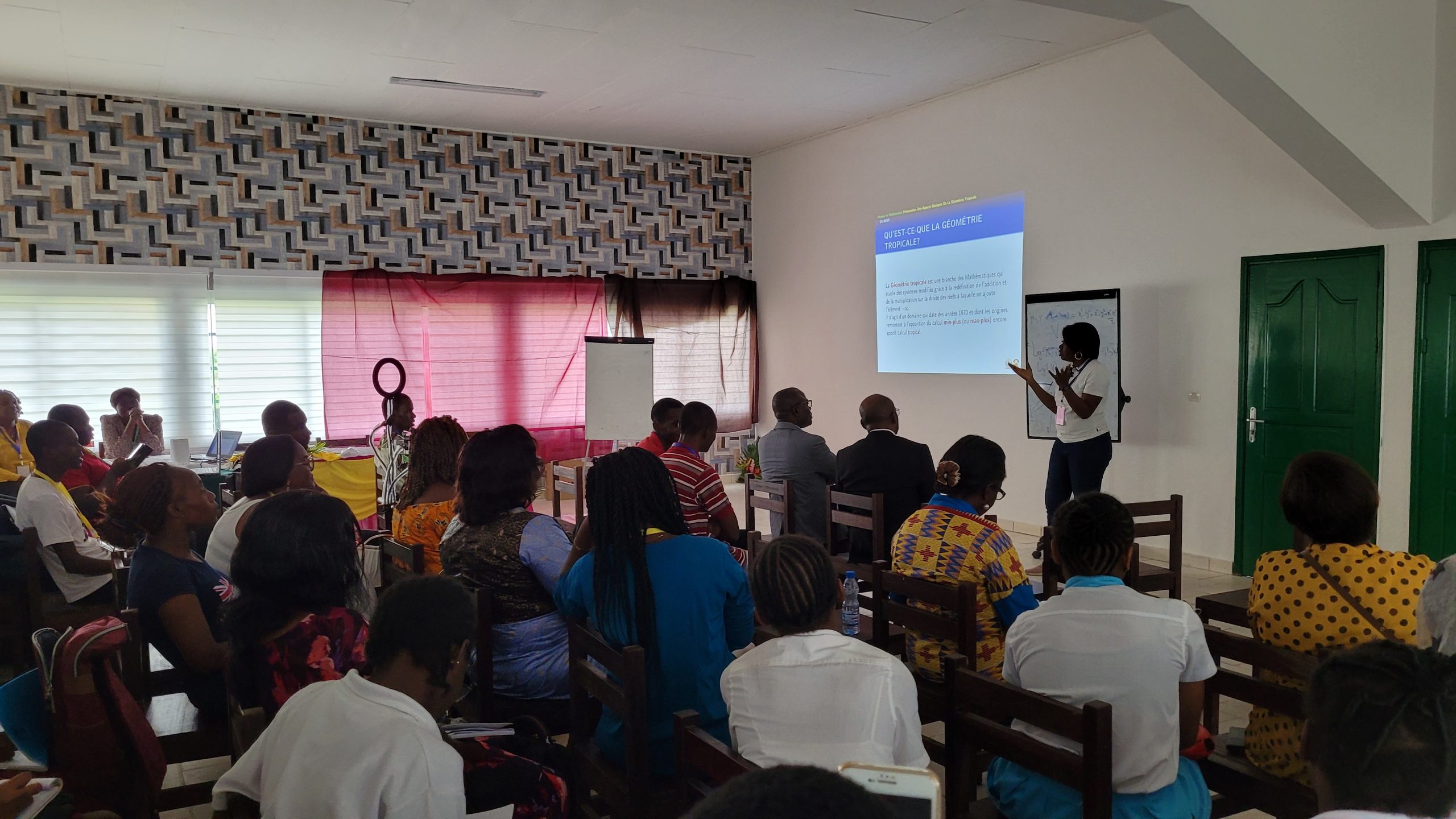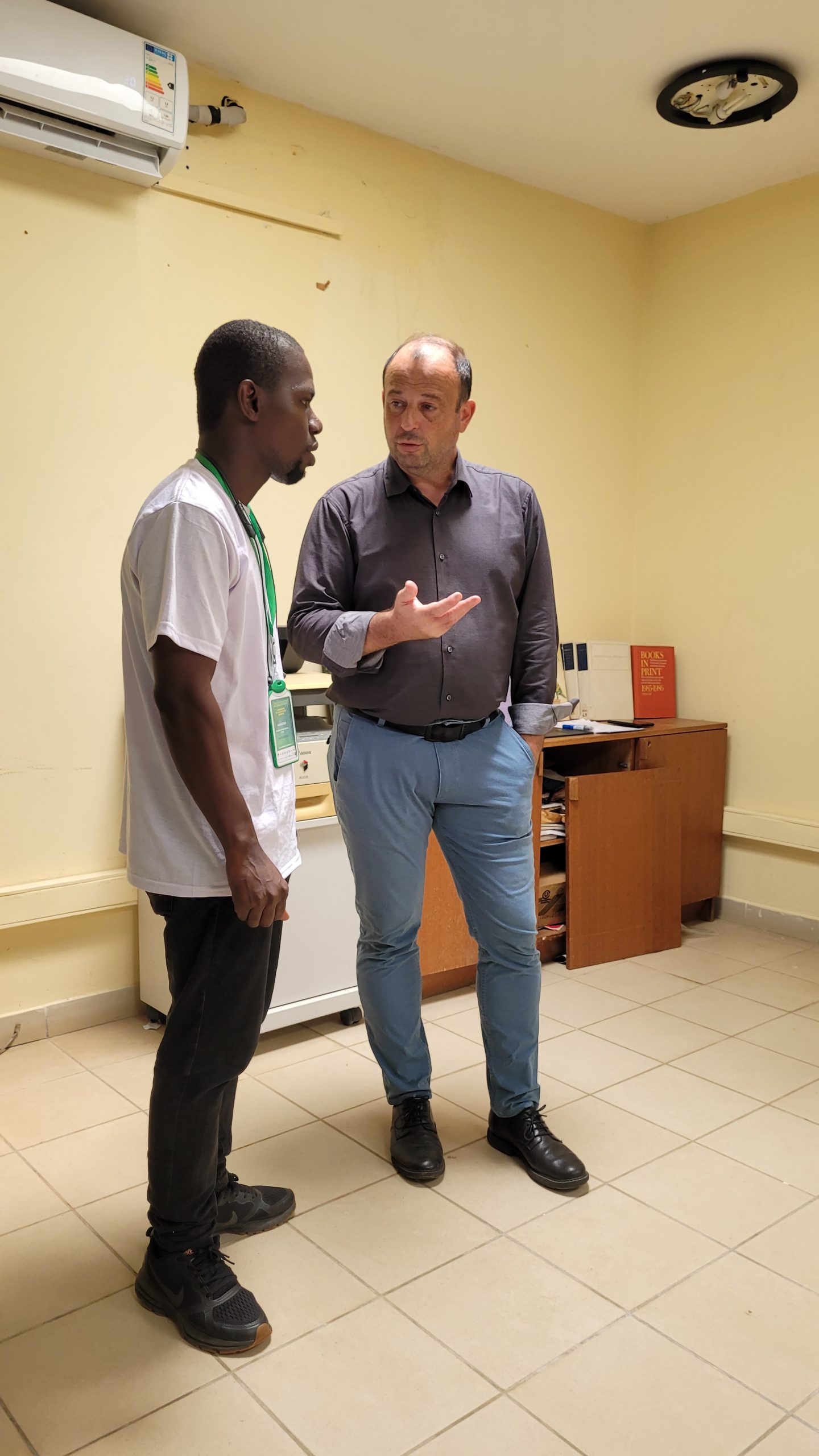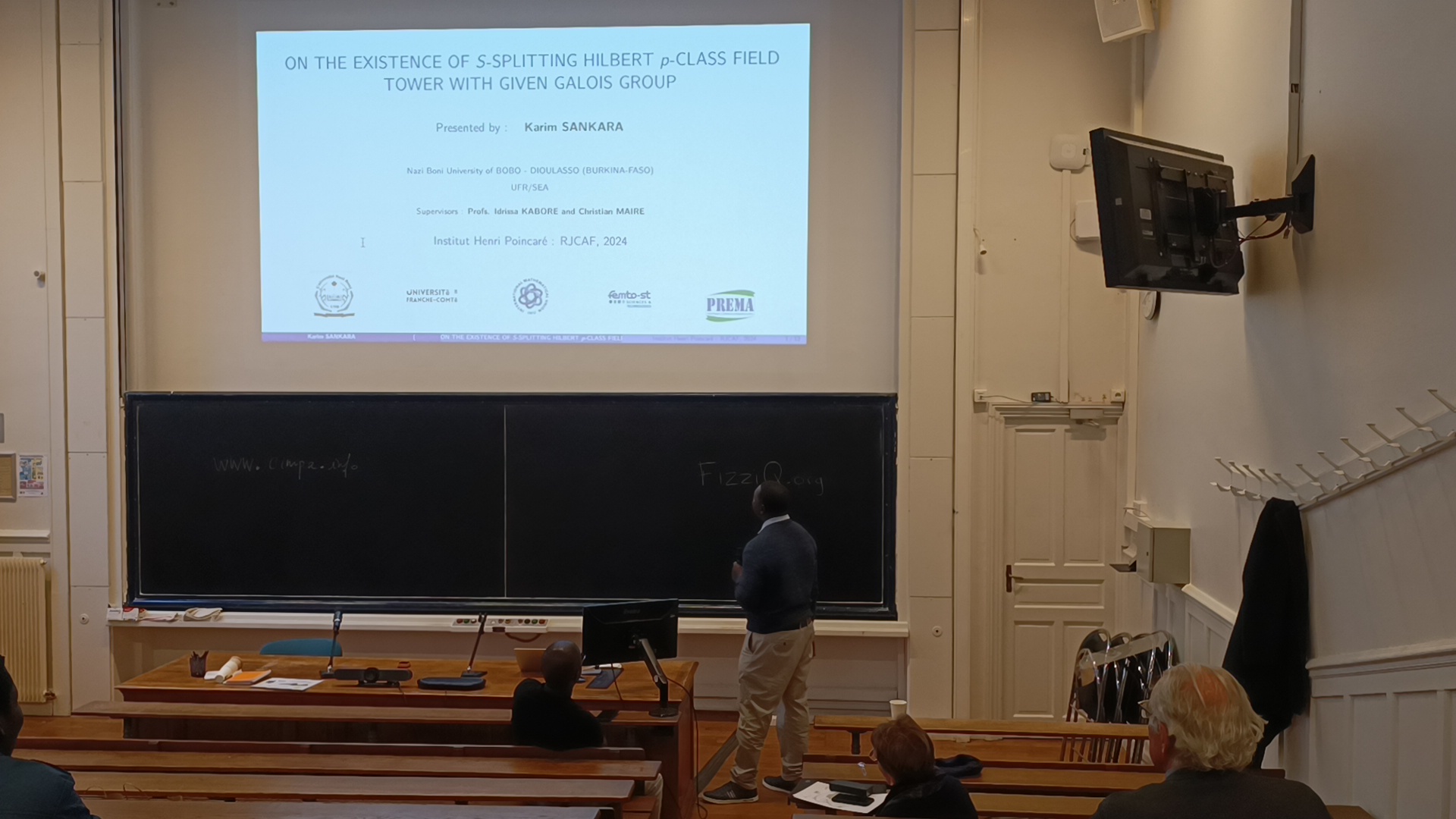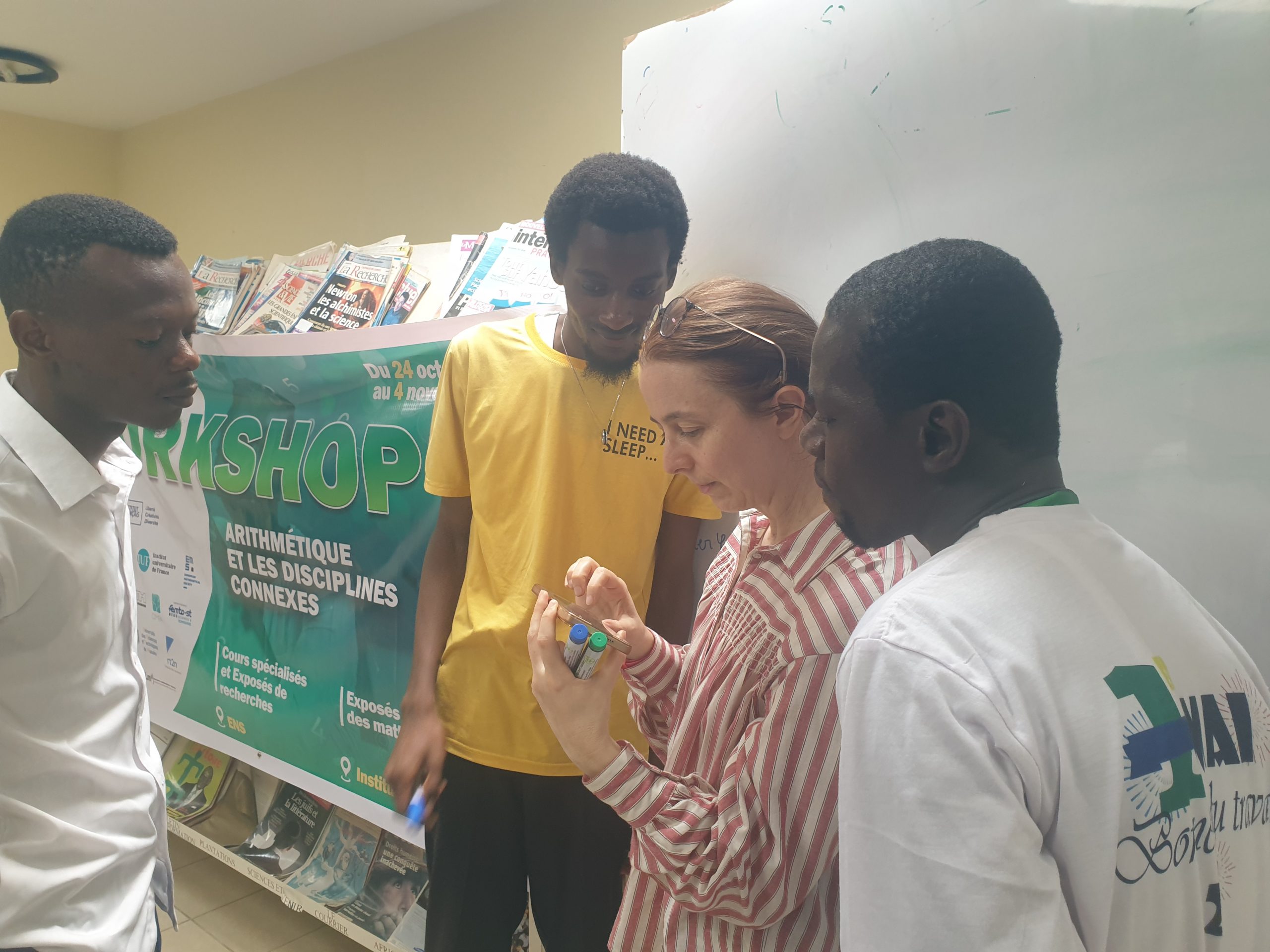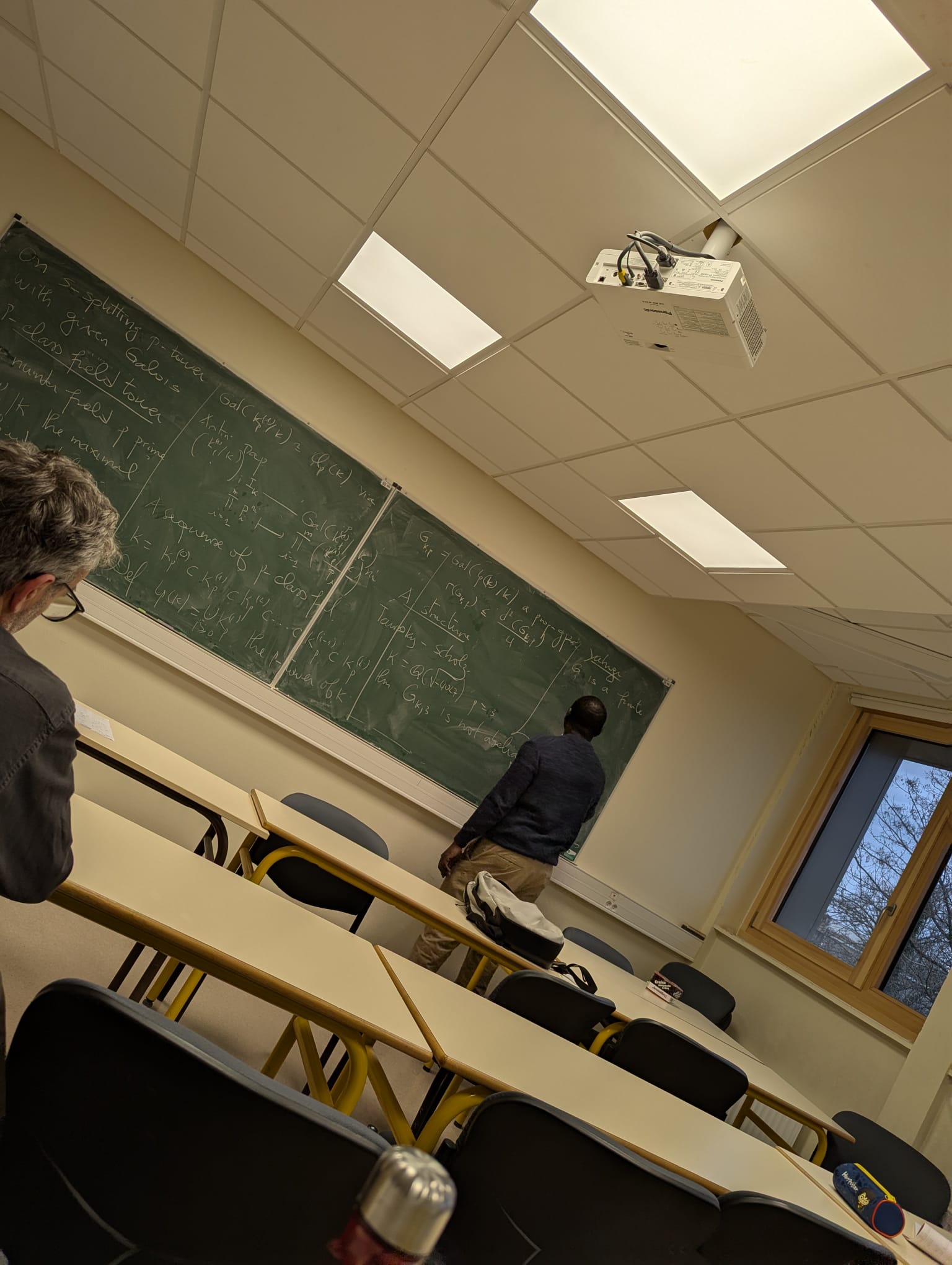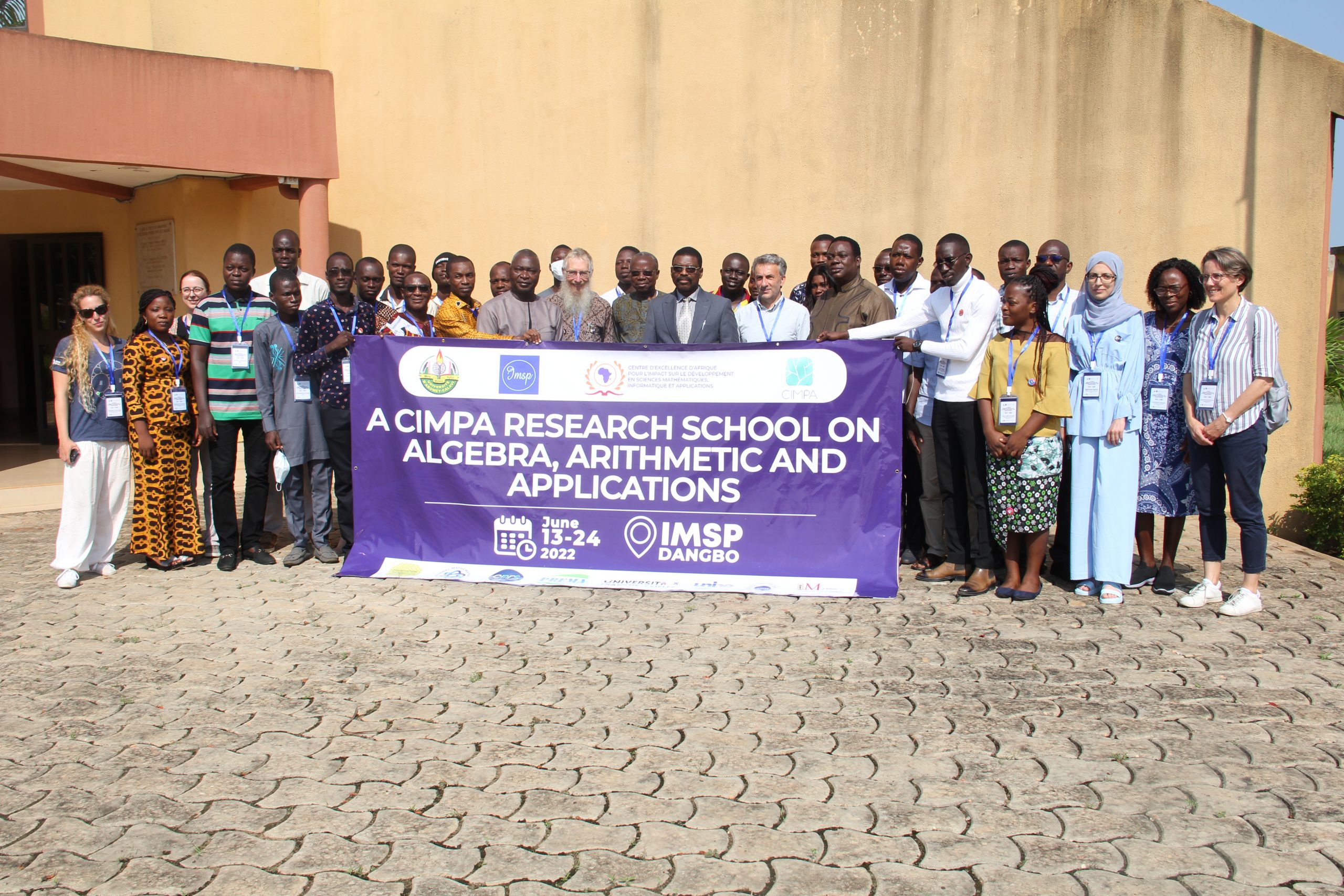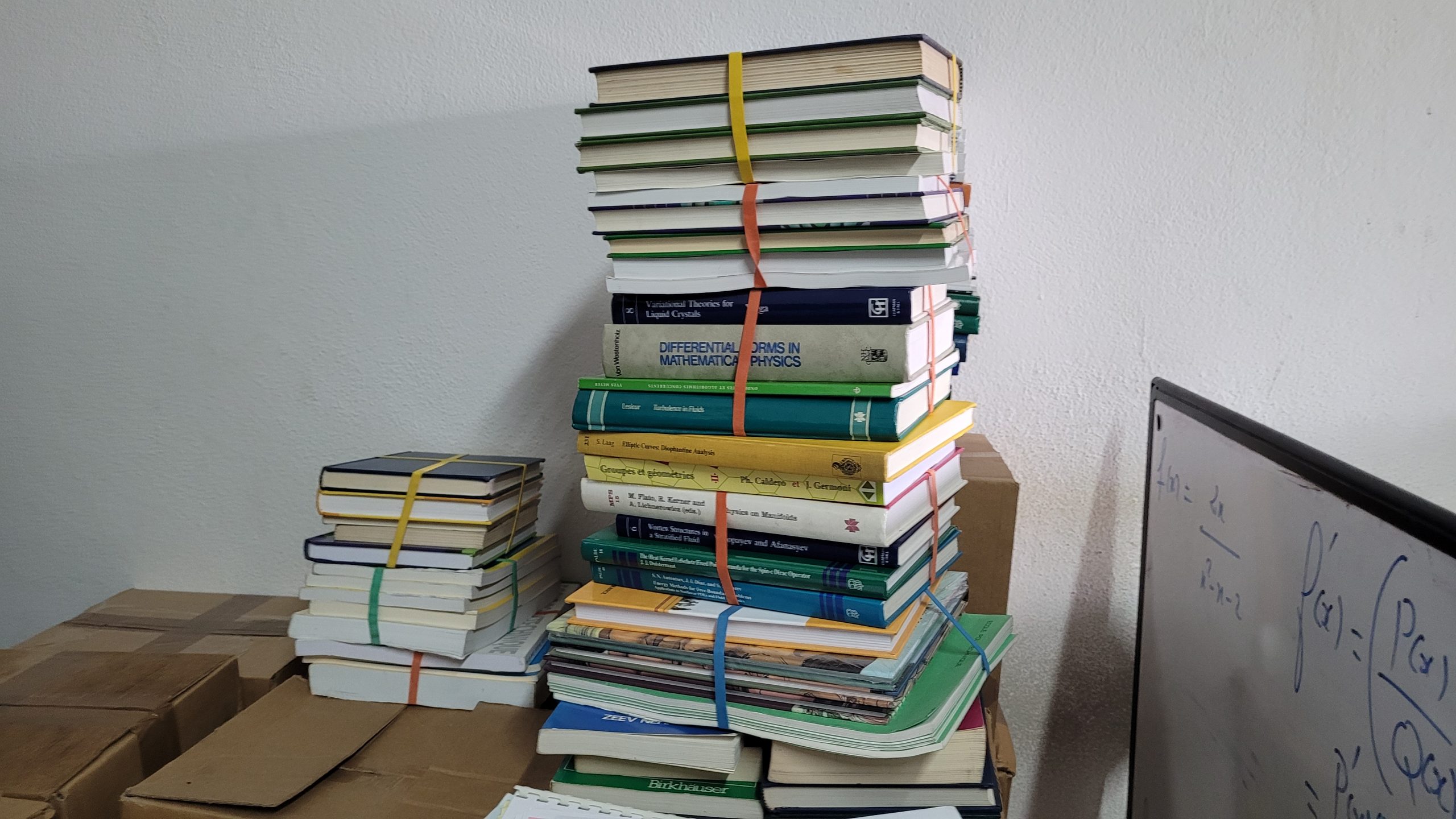
In recent years we have been training a new generation of mathematicians in arithmetic through courses, workgroups, research schools, thesis supervisions, assignments, etc. This has been made possible thanks to regional contacts and the support of numerous colleagues. Building on this experience, we intend to go beyond the training of students with a high level of mathematics. Our project will contribute to:
Research on cutting-edge topics. Our aim is to further scientific collaboration in the following areas: arithmetic, algebra and geometry in number fields; arithmetic and geometry of algebraic curves; pseudo-primality tests, etc. Special attention will be paid to applications in cryptography and coding theory, and to the PARI/GP arithmetic system. Conferences will play a key role in bringing together African and Western researchers on these topics.
Training a new generation of researchers. The core of our project is to guide motivated students towards doctoral studies in cutting-edge topics by providing them with the necessary tools and techniques to engage with the international context. The objective is also to ensure their local integration. This generation of young researchers will then pass on the torch in their countries. The Research Schools will provide selected students with the necessary knowledge in arithmetic to bring them to a very high mathematical level. This will enable them to engage comfortably in discussions on current issues in arithmetic, geometry, and their resulting applications. They will thus have the means to understand the importance and role of mathematics, particularly in the local context. They may also work to popularize mathematics with insight. The top students in this program will have the necessary foundations to begin a thesis in the relevant fields and engage with the international context.
A research conducted on-site. One of the objectives is also to assist in expanding and developing research in the regions concerned. For this research to be relevant, it is necessary to confront it with the international context. This requirement is essential for a thorough understanding of the issues, latest innovations, ethical standards, etc. The expected outcomes of this project also include the exchange of ideas through scientific collaborations (south-south and north-south).
Community involvement, all within an international context. We see at least three high-potential axes:
- Supporting local businesses. A thorough mathematical education enhances employability in a variety of fields. Thanks to a high-level training, students will further contribute to the development of their country.
- Training trainers and school teachers. This project aims to contribute to the development of high-level education in mathematics, with at least two consequences:
- The best students will be able consider academic careers locally and actively participate in the development of the relevant universities.
- For students pursuing teaching careers, they will have a good understanding of current mathematical research.
- Empowering women. In recent years, the international mathematical community has been working to guarantee equal opportunities for women. This is an ongoing effort that requires considerable energy and context-specific initiatives in Africa. The presented program will pay special attention to young female students participating in the project.
Ensuring conditions for quality research. The first expected outcome for African researchers is to be able to advance their work in good scientific and material conditions. Collaborations and co-supervisions with Western colleagues, along with stays dedicated entirely to research activities, will contribute to this. Some practical details are also important: occasionally having access to a reasonably comfortable working environment in terms of accommodation, organization, documentation, internet connectivity, encourages the maturing of original ideas.

